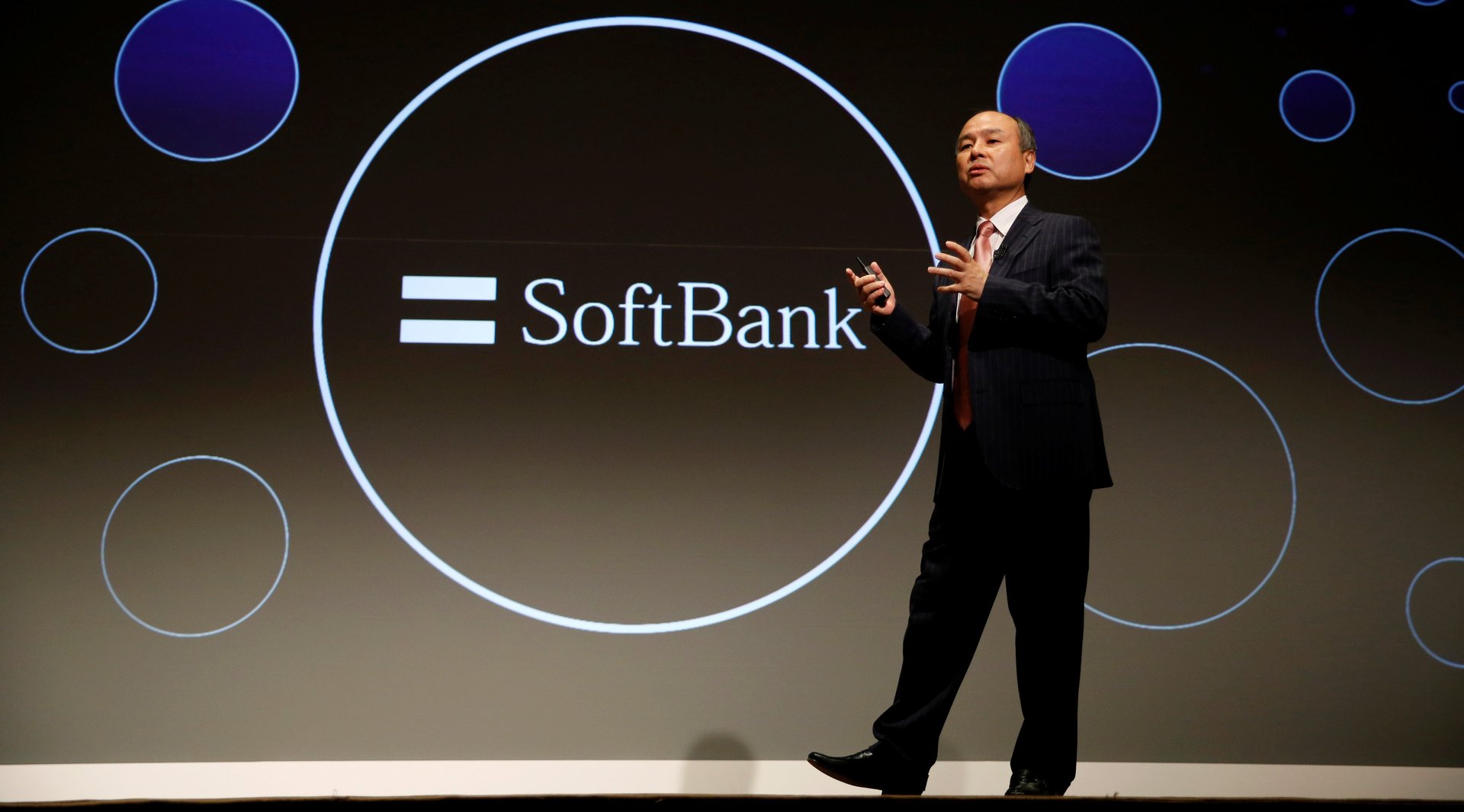A SoftBank-led group of investors is on the verge of investing $10 billion in Uber
Uber has agreed to receive an investment led by Japanese tech conglomerate SoftBank, bringing months-long negotiations closer to their end. The deal, should it close, will help the ride-hailing giant turn a new leaf after a tumultuous year that saw the downfall of its founder Travis Kalanick, who resigned as CEO in June after allegations of sexual harassment, gender discrimination, and a toxic work environment.


Uber has agreed to receive an investment led by Japanese tech conglomerate SoftBank, bringing months-long negotiations closer to their end. The deal, should it close, will help the ride-hailing giant turn a new leaf after a tumultuous year that saw the downfall of its founder Travis Kalanick, who resigned as CEO in June after allegations of sexual harassment, gender discrimination, and a toxic work environment.
According to Bloomberg, SoftBank, along with Dragoneer Investment Group and General Atlantic, will directly invest $1 billion into Uber at a nearly $70 billion valuation. In addition, SoftBank will purchase up to $9 billion in Uber stock from existing Uber shareholders.
“We believe this agreement is a strong vote of confidence in Uber’s long-term potential,” Uber said in a statement. “Upon closing, it will help fuel our investments in technology and our continued expansion at home and abroad, while strengthening our corporate governance.”
SoftBank declined to comment and referred back to Uber’s statement.
The deal could still fall apart, as noted by the New York Times (paywall). SoftBank will now set a price at which it intends to buy shares from existing investors and employees, as part of a process known as a tender offer. Staff who joined the company early and received stock options could become millionaires if they sell their shares. But if the share transfers and direct investment cannot help SoftBank gain ownership of at least 14% of the company, the Times reports, it could walk away from the deal.
If the deal goes through, Benchmark Capital, one of Uber’s earliest investors, will drop its lawsuit against Kalanick, which it filed in August alleging Kalanick had engaged in “gross mismanagement.” It will also see Kalanick’s influence at the company wane, per corporate governance changes approved last month that the SoftBank investment required.
In August, SoftBank publicly stated it was considering investing in Uber. Since then, a deal between the two companies has moved forward slowly but steadily. It appeared imminent in early October when Uber’s board voted to increase the number of board seats and greenlit a “one share, one vote” structure that handicapped Kalanick’s outsized influence. But negotiations have since stalled. Kalanick continued to fight for influence on the board (paywall), and SoftBank’s Masayoshi Son stated in his company’s November earnings call last week the investment was “not yet decided.”
In addition to providing Uber more cash, the SoftBank investment would help CEO Dara Khosrowshahi consolidate power at the company at the expense of Kalanick. Since joining Uber in late August, Khosrowshahi has adopted a more conciliatory leadership style than Kalanick, whose pugnacious tactics helped Uber grow rapidly but alienated employees, regulators, and the public.
The deal also raises the chances of a merger between Uber and Grab, its rival in Southeast Asia, as SoftBank would own stakes in both companies. The two competitors remain locked in an expensive stalemate across the region, not unlike the one Uber faced in China with Didi before they merged in 2016.